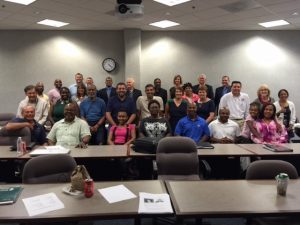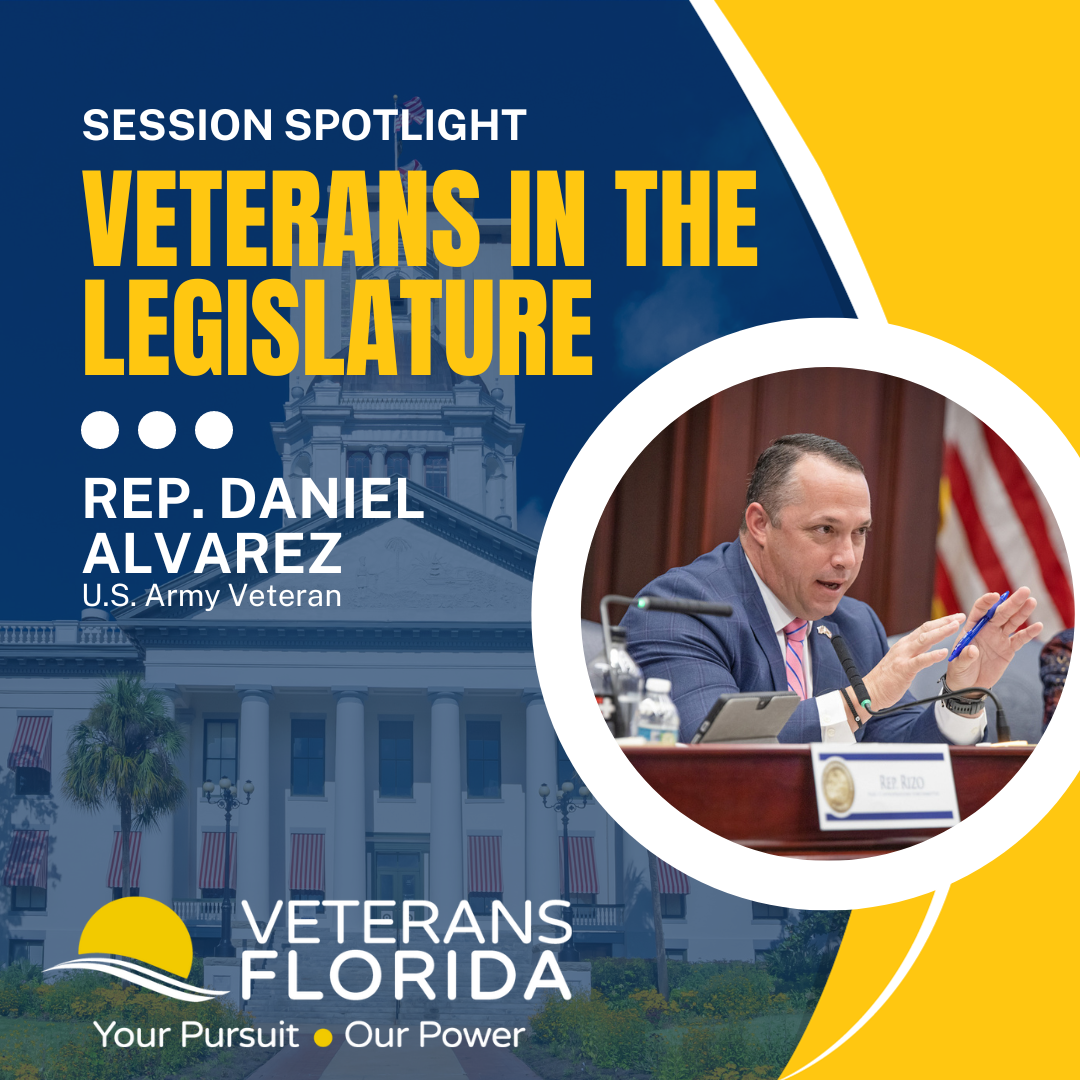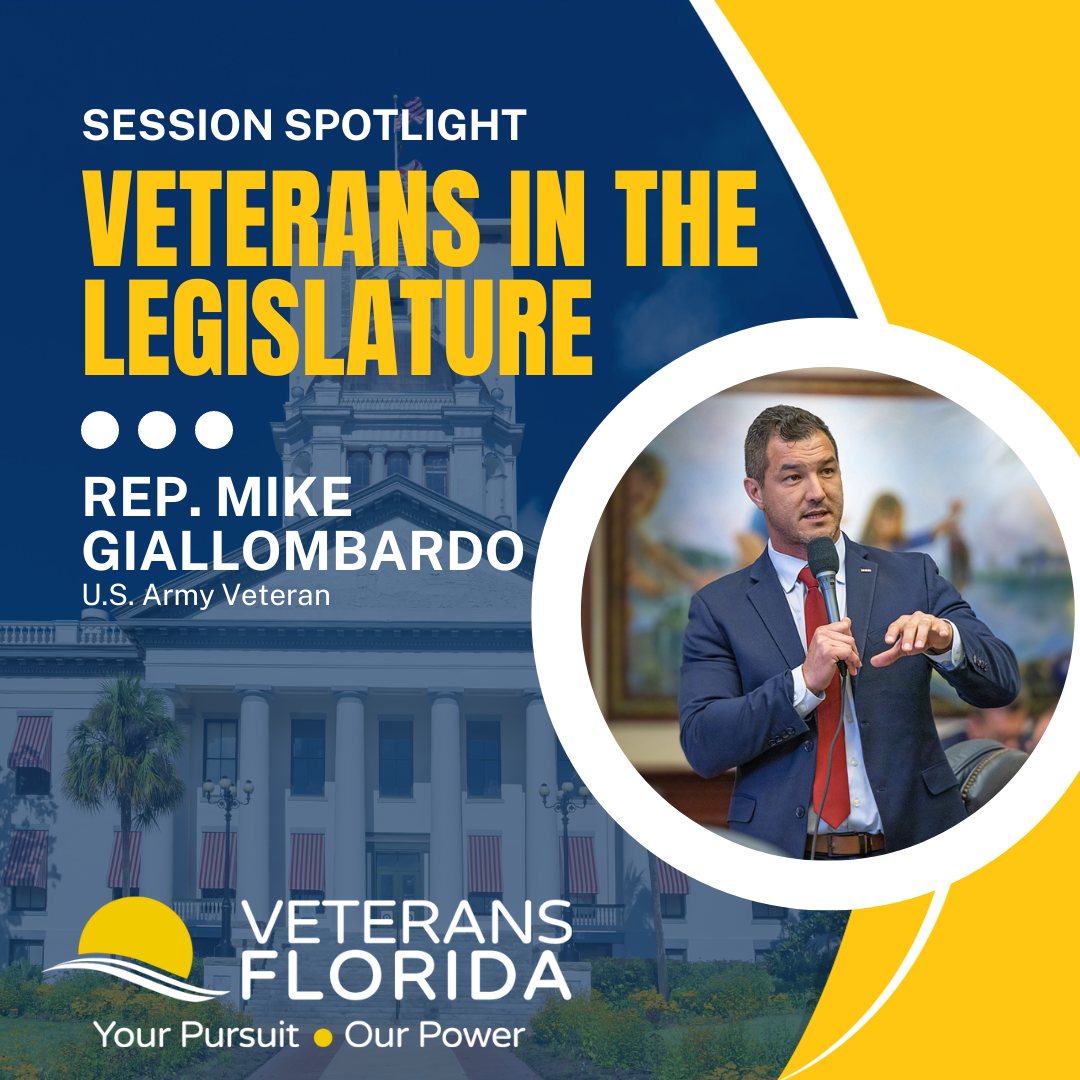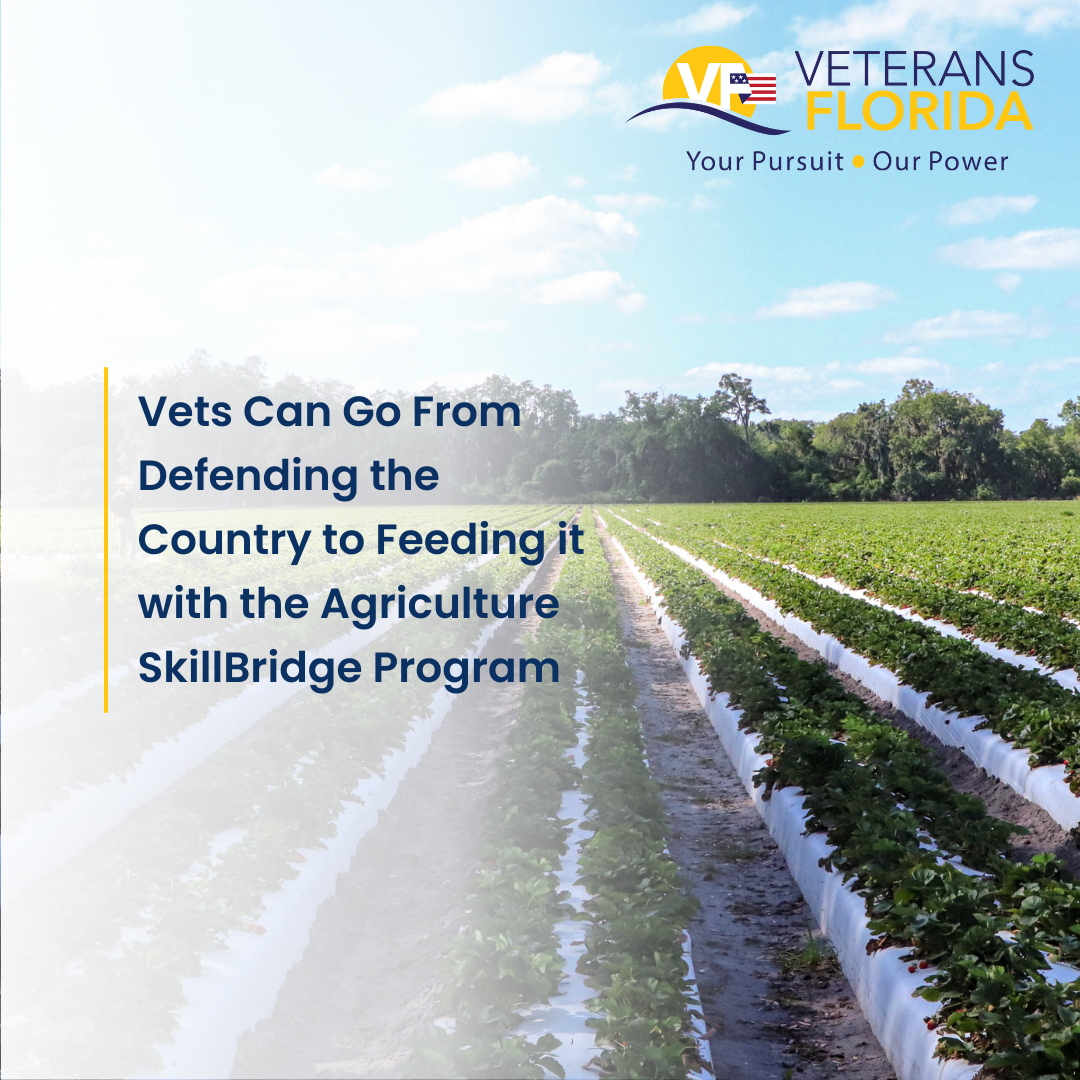The inaugural Veterans Florida Entrepreneurship Program has given numerous veterans the knowledge and support they need to make their dream of launching their own business a reality.

The Veterans Florida Entrepreneurship Program class at University of North Florida
Four years ago, Bradley Cantrell, 33, an active duty serviceman working as an Air Force Tactical Systems Operator (TSO) at Herbert Field in Fort Walton, Florida, came up with a compelling business idea—to sell alcohol-infused ice creams of his own making under the name Happy Hour Ice Cream. Since that time, he has made significant strides toward developing ice creams that people will want to buy and consume and has set up a Happy Hour Ice Cream website and Facebook page that bear testimony to that progress. “I’ve experimented with about 40 flavors in my home kitchen and about 20 are ready to hit the street,” he says. “My latest is a delicious Cookies and Cream with whipped vodka.”
He may have been working on his ice creams for some time, but realization of his business concept took a huge leap forward this past spring when he completed the inaugural Veterans Florida Entrepreneurship Program at the University of West Florida (UWF) in Pensacola, FL—a free three-phase program that was offered at five different state universities with the involvement of local Florida Small Development Centers (SBDC) and the goal of fueling both veteran-owned enterprises and the Florida economy. The program was created and sponsored by Veterans Florida.
Bradley not only finished the program’s first-phase online training and second-phase in-classroom instruction (three consecutive weekends), but also won UWF’s optional business plan competition, which took place on the final classroom day. Now he has far more than the development of mouthwatering treats under his belt; he has a near-complete business plan and the know-how and resources required for turning his idea and products into a truly successful business—something he intends to do when he transitions into the Reserves in a year’s time. “I’m going to open one shop, get that model profitable and then start opening more outlets. My end goal is to franchise across the United States.”
Ongoing guidance for program participants
He’ll have plenty of support along the way. The third phase of the Veterans Florida Entrepreneurship Program guarantees ongoing mentoring and tracking from experts at the regional Small Business Development Center. Bradley couldn’t be more excited about his future prospects: “I’m currently researching real estate and utilities costs and meeting with CPAs. The SBDC will plug the figures I come up with into their awesome math program and help me arrive at my end number—the amount of money I need to get Happy Hour Ice Cream off the ground.”
“I was so grateful I got to be in the Veterans Florida Entrepreneurship program—it was amazing! The Small Business Development Center in Fort Walton Beach gave me information about it and I said: ‘Yes! Sign me up!’”—Bradley Cantrell
Bradley is not alone in having reached critical business launch milestones. Over 400 active duty military men and women and veterans were admitted to the pilot Entrepreneurship Program across the five participating universities, and approximately one third of them completed the online and classroom phases.
A wide variety of business concepts and expert instruction
Bob Buehn, Entrepreneurship Training Program Manager at the University of North Florida in Jacksonville, says that both men and women attended and they represented diverse ages. He was wowed by their entrepreneurial concepts and dedication, as well as the expertise of the all-volunteer professors and business experts who provided instruction.
Both Bradley and Bob highlight the wide-ranging and innovative nature of the participants’ business concepts, which covered both services and products—everything from a new medical practice model and combination craft beer pub/comic book shop to a unique pizza cutting tool and golf tee. “At first we organized the participants into groups according to the type of businesses they wanted to work on—manufacturing or a service,” Bob says. “But from the pilot program we learned that it’s probably better to group them by how far along they are in the development of their business. So, future programs will probably go in that direction.”
The program participants’ positive experiences not only revamped their business notions but also provided important takeaways for those who shaped and led the training. Says Bob: “For the next program, which will start in the spring of 2017, we’re going to mix up the online and classroom instruction. We want to integrate the face-to-face interactions earlier in the program—do a couple weeks of online and then get together for a day-and-a half or so of classroom work.”
Powerful bonding during the classroom phase
One of the things that impressed Bob most was the strong bonds that the participants formed and the mutual support they displayed during the in-person classroom phase. “Veterans are mission-focused and are used to working in teams,” he says. “The power of this program was most obvious when they came together as a group. They were all working on individual plans but you could see that they had built this great team by coming to class and interacting and sharing information and ideas. They really supported each other.”
Bradley is of a similar mind. Although he valued the online portion enormously (the insights provided by two text books, videos and a web forum where the students and instructors could provide feedback to one another), he especially appreciated the classroom training. “I learned about various tools and resources,” he says. “One was for conducting demographic research and that was pure gold for me.” The classroom sessions also covered effective business pitches, funding sources, presentations to prospective funders, marketing and branding. “We got to mingle with instructors, mentors, business experts and fellow students, many of whom had already accomplished a lot—and they all provided smart ideas,” says Bradley.
“Those resources will prevent me from going out there and just winging it. I got the tools I need to build my business plan, identify my target market and structure my business so that it’s profitable. I would recommend this program and the Florida SBDCs to anybody who wants to go into their own business. As long as it’s not ice cream, of course,” he adds, smiling.
Learn more about the next Veterans Florida Entrepreneurship Program and how to enroll.




